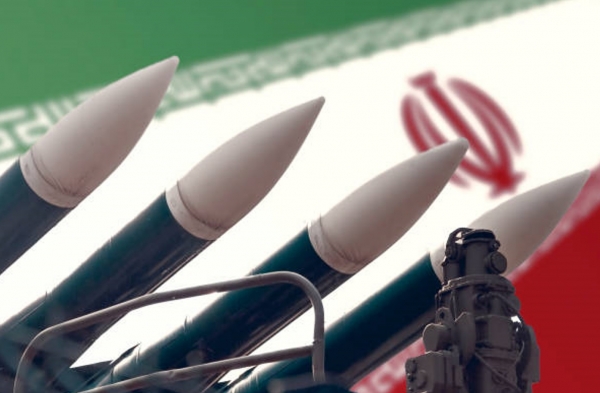As reported by Al-Jazeera, Iran’s use of hundreds of drones and missiles to directly target Israel overnight on Sunday in retaliation for an Israeli strike on the Iranian consulate in Damascus set some major political and military precedents. It was the single largest drone attack ever carried out by any country, and it was the first time Iran directly attacked Israel after almost a half-century of being archenemies.
The attack was in response to the April 1 Israeli strike on the Iranian consulate in Damascus that killed seven IRGC members, including two generals in charge of leading operations in Syria and Lebanon, along with six other people. It was mainly aimed at strengthening Iran’s deterrence, which critics said had been compromised after increasingly confrontational policies and military strikes by the United States and its allies across the region, especially following the January 2020 assassination of top general Qassem Soleimani in Iraq.
That is true even as Tehran recognises that Israel and the embattled government of Prime Minister Benjamin Netanyahu may see benefits in escalating tensions across the region and forcing the US military into taking more action against Iran. On the other hand, the unprecedented Iranian attacks may have briefly shifted the world’s attention from the deaths of tens of thousands of women and children in the Gaza Strip, but they could translate into soft power gains for Iran in the Muslim world in the long run, when compared with other regional powers.
According to Al-Jazeera, there is no official confirmation from Iran about exactly how many drones or ballistic and cruise missiles it used to attack Israel, but the Israeli military said more than 300 were launched.
Iran has long been known to possess the largest and most varied missile arsenal in the Middle East, but this was by far the largest test of its capabilities.
Iran also possesses Fattah, a hypersonic ballistic missile that could theoretically arrive in Israel in as little as seven minutes, along with a cruise missile variant of the same family. There was no indication the missiles were used in the early Sunday attacks.
“The operation achieved a level of success that exceeded our expectations,” said IRGC commander-in-chief Hossein Salami, adding that the projectiles only targeted military sites, including the Nevatim airbase in the Negev desert that was allegedly used to launch the Israeli strikes on the Iranian consulate in Syria.
As reported by CNN, Israel reacted angrily to the unprecedented strikes, while praising its military’s response.
Defence Minister Yoav Gallant said the attack had been “thwarted this attack in a way that is unparalleled” but added “we must be prepared for every scenario.” In his first comments, Israeli Prime Minister Benjamin Netanyahu said “we have intercepted, we have contained. Together we shall win.”
But Israel’s allies in the West urged the country to work to de-escalate the crisis, rather than respond in a way which could tip the situation into open warfare.
US President Joe Biden spoke by phone with Israeli Prime Minister Netanyahu, and made clear that the US would not participate in any offensive operations against Iran, a senior White House administration official told CNN. Biden told Netanyahu he should consider the events of Saturday night a “win” as Iran’s attacks had been largely unsuccessful, and instead demonstrated Israel’s “remarkable capacity to defend against and defeat even unprecedented attacks.”
According to CNN, after a virtual meeting Sunday, leaders of the G7 condemned in a joint statement the Iranian attack, which it said, “risks provoking an uncontrollable regional escalation.”
“We demand that Iran, and its proxies cease their attacks, and we stand ready to take further measures now and in response to further destabilizing initiatives,” they said.
To know more, read:
https://edition.cnn.com/2024/04/14/middleeast/why-iran-attack-israel-intl/index.html
https://www.npr.org/2024/04/14/1244693369/iran-israel-middle-east-what-to-know







